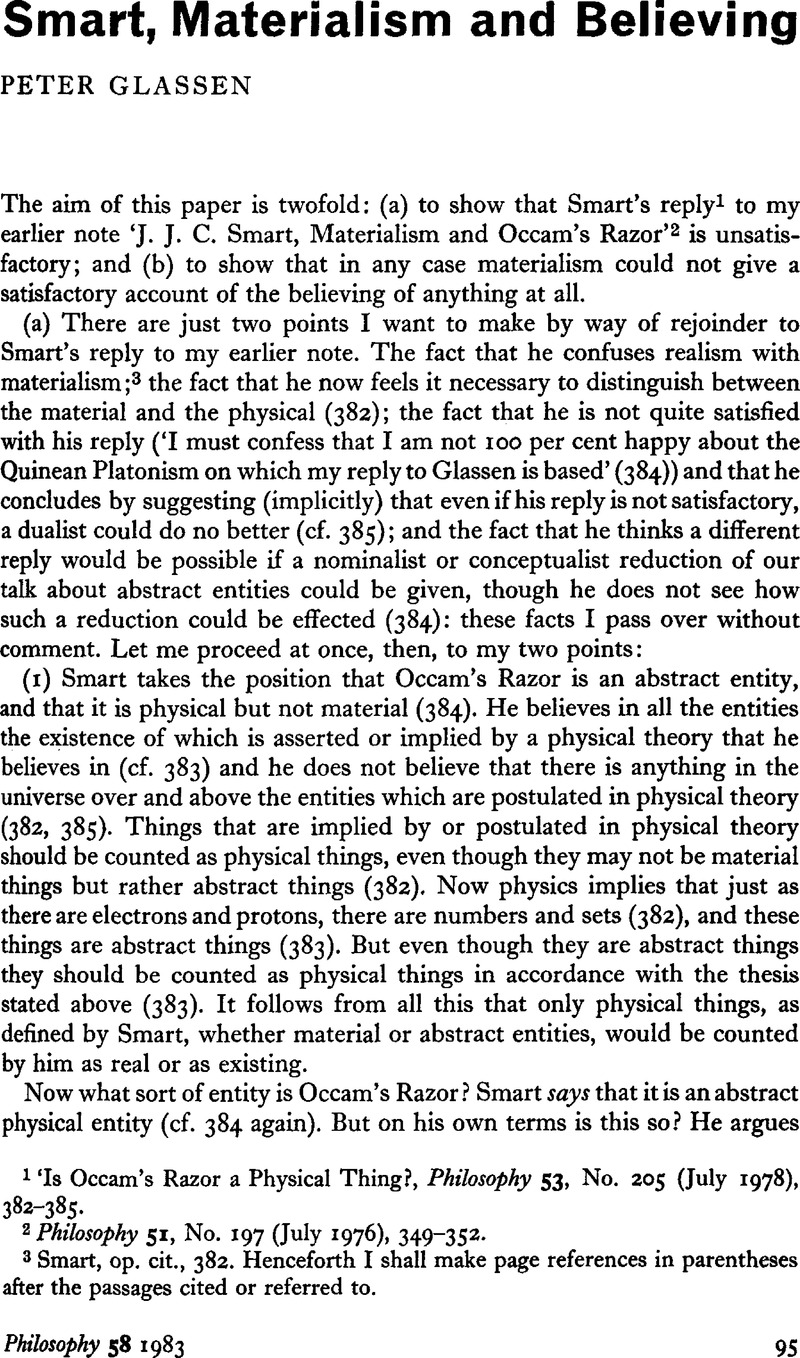No CrossRef data available.
Published online by Cambridge University Press: 30 January 2009

1 Is Occam's Razor a Physical Thing?, Philosophy 53, No. 205 (July 1978), 382–385.
2 Philosophy 51, No. 197 (July 1976), 349–352.
3 Smart, op. cit., 382. Henceforth I shall make page references in parentheses y after the passages cited or referred to.
4 Indeed, that this might turn out to be his line of argument is suggested by his remark: ‘In a nutshell, then, my reply to Glassen is that Occam's Razor is an abstract entity, and that it is physical but not material’ (384). But in fact this is not his line of argument. If it had been, then the conclusion arrived at in (1), namely, that even on Smart's own terms Occam's Razor is not a physical thing, would have been sufficient to refute it.
5 It is clear that my arguments have been directed against those materialists, such as Smart, who hold the identity thesis. Other materialists, however, apparently realizing (if only unconsciously) the difficulties inherent in this thesis—I have not seen mentioned the ones I have dwelt on here—have sought to overt come these difficulties by another theory called ‘functionalism’. Now functionalism is ontologically neutral; even an idealist could be a functionalist. Hence, functionalism, even if true, would not support materialism; that theory would have to be justified on other grounds. But it would enable a materialist to meet the objections in this paper, and thus make the materialist position at least a possible one f to hold. However, functionalism faces difficulties of its own. I do not propose to discuss these here, since that job seems to me to have been ably performed by f N. J. Block. See his ‘Troubles with Functionalism’, in Perception and Cognition: Issues in the Foundations of Psychology, Minnesota Studies in the Philosophy of f Science, 9, C. W. Savage (ed.) (Minneapolis: University of Minnesota Press, 1978); ‘Are Absent Qualia Impossible?’, The Philosophical Review (April 1980); 1 and ‘Psychologism and Behaviour’, The Philosophical Review (January, 1981).